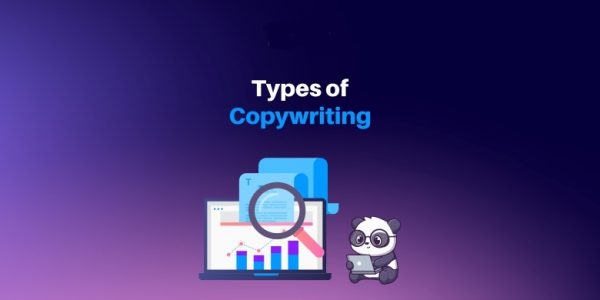
The Multifaceted World of Copywriting
Copywriting, the art of crafting persuasive text, is a vast field that presents endless creative possibilities. Whether it’s an attention-grabbing headline, a compelling product description, an inspiring social media post, or a comprehensive website content, every written piece in the marketing and advertising world is an output of some form of copywriting. But like most creative disciplines, copywriting is not a one-size-fits-all craft. It exists in various forms, each with its unique attributes and applications.
Understanding the different types of copywriting is vital for businesses, marketers, and aspiring copywriters. This knowledge allows businesses and marketers to make informed decisions about the type of content needed to reach their target audience. For copywriters, knowing the types of copywriting enables them to choose their area of expertise, build a diverse portfolio, and find lucrative opportunities in their chosen niche.
Decoding the Different Forms of Copywriting
In its simplest form, copywriting involves writing text that persuades the reader to take a certain action. However, this action can vary depending on the context, audience, and medium. Hence, copywriting takes on different forms, each serving a specific purpose.
For instance, advertising copywriting focuses on creating catchy slogans, taglines, and scripts for commercials that drive immediate sales. On the other hand, SEO copywriting involves crafting content that is not only persuasive but also ranks high on search engine results to attract organic traffic.
Another type is direct response copywriting, which is aimed at prompting an immediate response from the audience. This could be through sales letters, email marketing, or direct mail.
Five Noteworthy Types of Copywriting
- Brand Journalism: This type focuses on telling a brand’s story in a journalistic style. It includes writing articles, blog posts, and other forms of content that inform, engage, and build a positive image of the brand.
- Technical Copywriting: Technical copywriters specialize in producing content for technical or complex products and industries. This includes creating user manuals, product guides, white papers, and how-to articles.
- Creative Copywriting: This involves writing imaginative and engaging copy for advertising and promotional campaigns. The goal is to grab attention, stir emotions, and compel the audience to act.
- Content Copywriting: Content copywriters create informative, valuable, and entertaining content that fosters a long-term relationship with the audience. This includes blog posts, articles, eBooks, and infographics.
- Conversion Copywriting: This type of copywriting focuses on turning prospects into customers. It’s all about persuasion and action. Sales pages, landing pages, and email marketing are common examples.

Choosing the Right Copywriting Type for Your Needs
Understanding the different types of copywriting is not just about gaining knowledge. It’s also about leveraging this information to make the right decisions. If you’re a business, it’s crucial to identify the type of copywriting that aligns with your goals and audience needs.
Similarly, if you’re a copywriter, finding your niche and mastering the specific skills needed can give you an edge in the competitive job market. Whether you’re drawn to the artistic allure of creative copywriting, the technical precision of technical copywriting, or the strategic depth of conversion copywriting, there’s a copywriting niche for everyone.
A Spectrum of Opportunities and Styles
In conclusion, copywriting is a rich and diverse field, encompassing a wide array of styles and approaches. Each type of copywriting serves a unique purpose and offers a different set of challenges and rewards. As the world of marketing and communication continues to evolve, the demand for specialized copywriting skills is only set to increase. The key lies in understanding the various types of copywriting and harnessing the power of words to persuade, inform, entertain, and inspire.
Popular
-
 Mobile Push Notification Copy: Short, Usef...
Mobile Push Notification Copy: Short, Usef...Mobile push notifications remain one of the most direct communication channels between …
-
 Content Pruning vs Content Refreshing: How...
Content Pruning vs Content Refreshing: How...Every site collects content debt: pages that used to help but now …
-
 The Structure of a Persuasive Commercial T...
The Structure of a Persuasive Commercial T...Commercial copywriting in 2025 is no longer built around loud promises or …
-
 Why Brands Are Finding It Harder to Mainta...
Why Brands Are Finding It Harder to Mainta...Audience loyalty has long been viewed as a stable foundation for sustainable …
